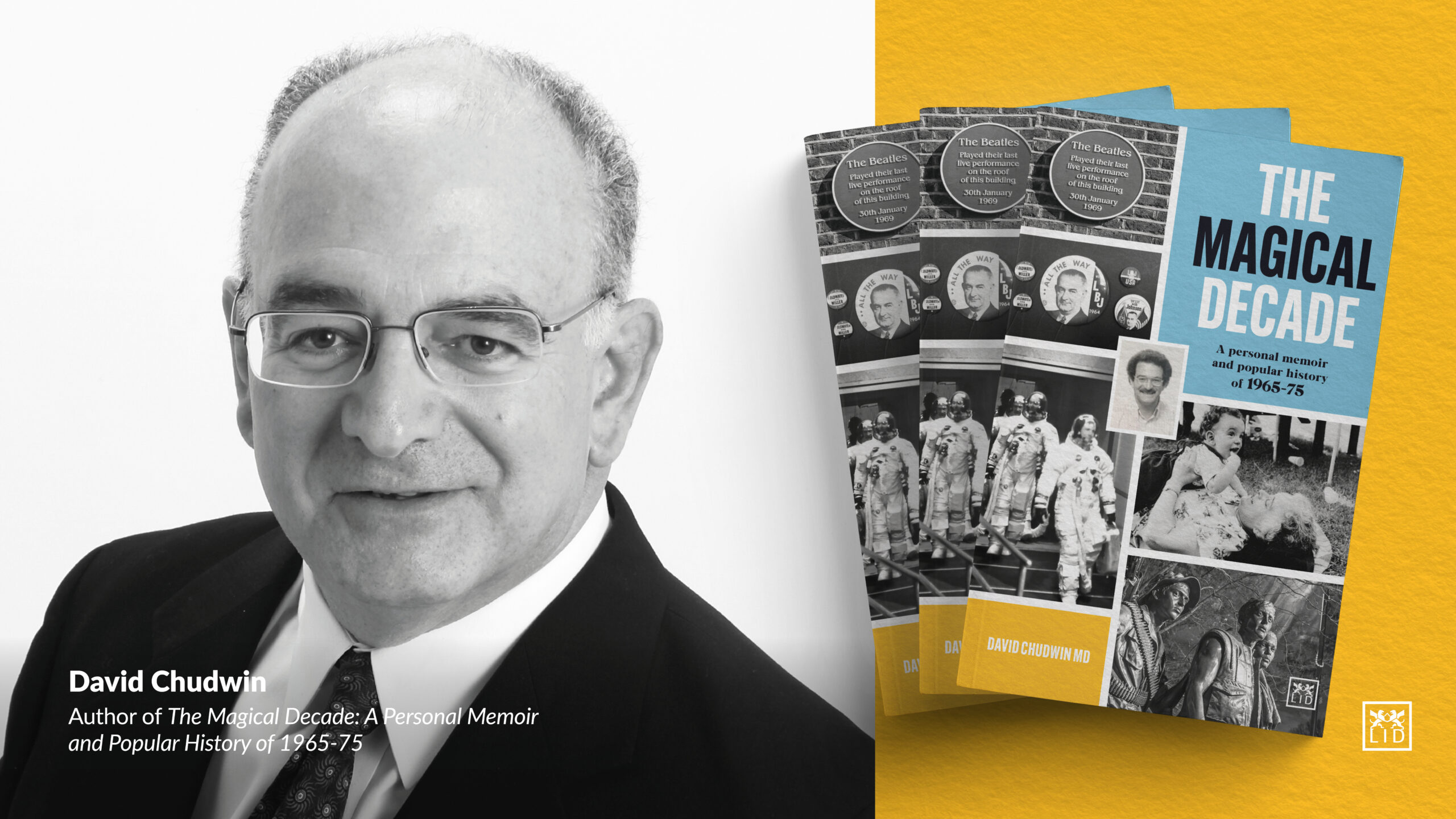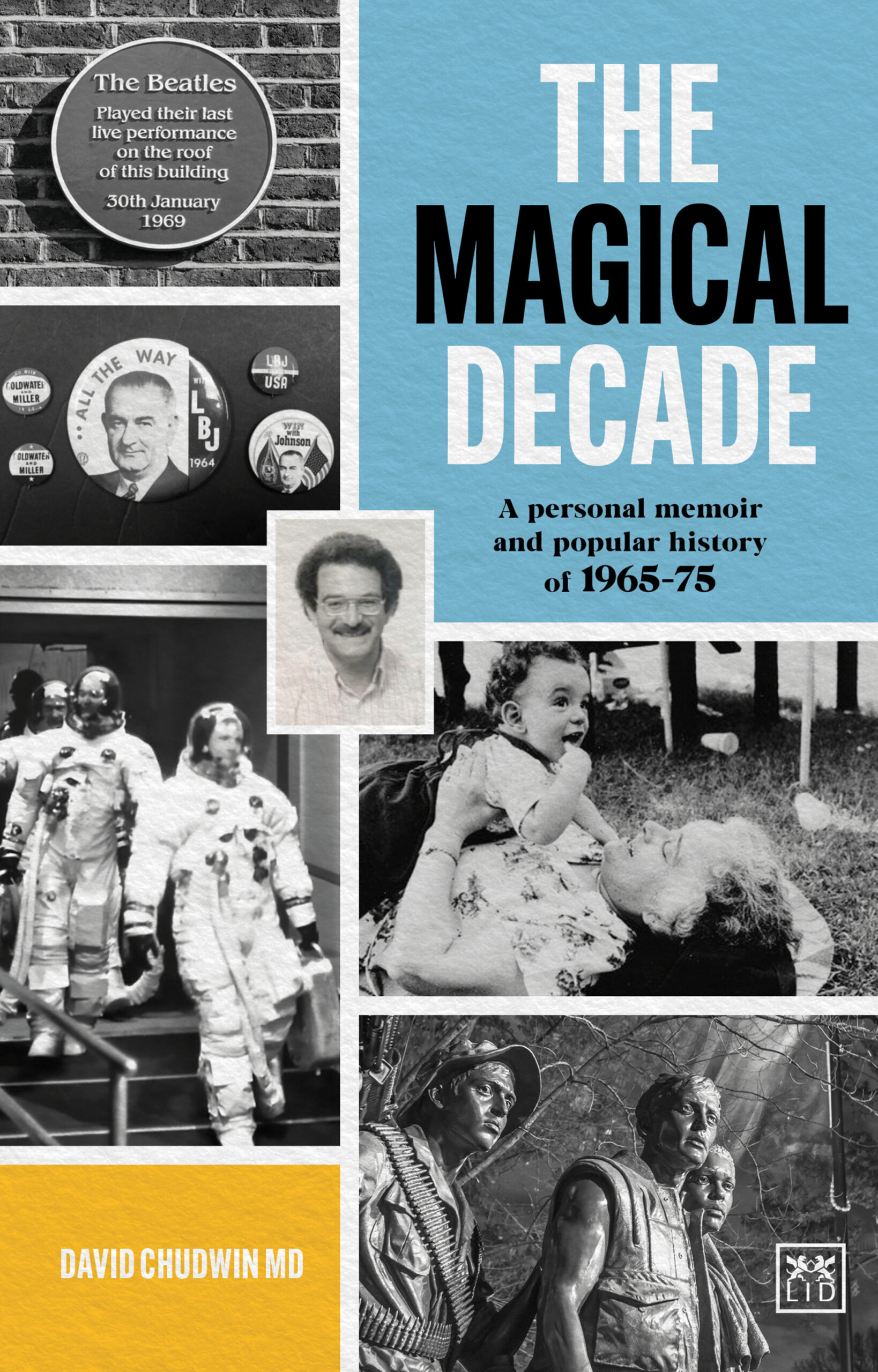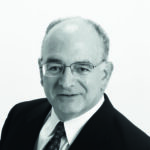|
The Magical Decade of David Chudwin
The Magical Decade of David Chudwin

By Guest Contributor David Chudwin
Author of The Magical Decade, David Chudwin, shares his most remarkable memories from the magical decade between 1965-75.
About 3 years ago, when I turned 70, I decided to look back at my high school and college years which were a time of unprecedented changes for me and the world around me. Like the fictional Forrest Gump, from 1965 -75, I was in the middle of revolutions in almost every field of endeavour. I call this time The Magical Decade.
This era, a half century ago, was marked by the Vietnam War, divisions at home both politically and culturally, advances in computer and medical technology, and vast changes in music, movies, plays, literature, and fashion.
I wrote my reminiscences in order for my children and grandchild to understand my background and experiences during my formative years from ages 15-25. However, I needed to give context to understand these events with brief histories of antecedent backgrounds and events.
While writing, I realized that by telling my own experiences I was also giving the story of the ‘Baby Boom’ generation of which I am a part. This generation born after World War II, from 1946 to 1964, faced great challenges; while every one of the 76 million of us had slightly different stories, the sum of our common experiences is a fascinating history. I thus expanded the scope of the book from a personal memoir to a popular history of 1965-75.
I was born in the right place (Midwest, USA) and the right time (1950) to have an opportunity to be an eyewitness to vast changes in American society during The Magical Decade. My family background contributed to my curiosity, scientific bent, and an interest in writing. My father was a physician whose choice of speciality (radiology) was piqued by his interest in photography (he had his own home darkroom as a high school student). He also was fascinated by astronomy and ground a telescope lens while in high school. My mother, besides being a housewife, was a freelance writer and her father studied poetry at Berkeley after he immigrated from Europe. I learned to read at a young age and my favourite books were so-called “juvenile science fiction” stories by writers such as Robert Heinlein or Isaac Asimov. I also enjoyed science fiction movies such as Destination Moon and The Day the Earth Stood Still. Walt Disney collaborated with former German rocket scientist Wernher von Braun to produce a series of realistic magazine articles and television shows about plans for upcoming flights to space, the Moon and Mars. Russians launched the first unmanned satellite in October 1957 and, even at only 7 years old, I was fascinated. The first US astronauts were named in April 1959 and like many kids my age, I saw them as role models. However, I knew early on I was not destined to fly in space myself — poor eye sight and mild claustrophobia ruled that out.
I was a good student, somewhat of a “nerd“, who enjoyed writing assignments and English classes, as well as science classes such as chemistry. At the beginning of The Magical Decade in 1965, our family moved from a middle-class neighborhood on the South Side of Chicago to a small suburban community 23 miles south of the city. I attended, as a Sophomore, a new high school that was only four years old. Sports were a big part of the social scene. For someone with almost no athletic ability, I joined the track team and became a shot putter. I still have my sophomore track “letter.”
School dances called “sock hops” were also popular events. They were held in the school gymnasium; socks rather than shoes were worn so as not to damage the wooden basketball floor. It was at these sock hops I was introduced to the sounds of the British Invasion, especially The Beatles. By 1964 when they appeared on the Ed Sullivan Show the Beatles were the top band in the world. It was announced they would play two live concerts In Chicago in August 1965.
Tickets were impossible to find, but my uncle, who was in the music business, scored tickets for his two sons and generously gave his other two to me and my younger brother. Attending the event in person was in many ways the start of The Magical Decade for me. In the years that followed, I was able to see other Brits such as Elton John and The Rolling Stones, as well as Americans such as The Fifth Dimension and Bob Dylan with The Band.
In the Summer of 1969, I had a dilemma. I heard of plans for a music festival in August in upstate New York with the top American bands. I was also trying to get NASA press passes to cover Apollo 11, the first Moon landing, in July from Florida for The Michigan Daily, the student newspaper where I was attending university. I could only take one week off my summer job so the question was: Woodstock or Apollo?
I chose Apollo. It was a life-changing experience seeing Armstrong, Collins and Aldrin walk out in their spacesuits and then leave for the Moon aboard a mighty 363-foot- tall Saturn V rocket. I watched the lift-off from 3 miles away, the closest allowed, and experienced the ground shaking, sound waves buffeting my chest, heat from the engines, a brilliant flame, and a loud roar.
Reporting on events for The Daily led me to a variety of experiences while an undergrad from 1968-72. I was tear-gassed and almost arrested covering anti-Vietnam War protests in Washington, D.C. in 1969 and 1971. I was the lead reporter for the first national environmental teach-in in Ann Arbor in April 1970, the precursor for the first Earth Day the following month. I helped cover the Black Action Movement strike for increased minority admissions and support, which brought to the forefront issues of race and discrimination on campus.
I was appointed Managing Editor of The Daily in February 1971, the number 3 position in the hierarchy. At about the same time, I came to a crossroads in my life. I had to decide whether to go to medical school or start looking for jobs in journalism. I was prepared for both career paths. I had majored in zoology and had taken pre-med courses including the hated organic chemistry. I had my Daily experience and did a summer internship on the copy desk at the now-defunct Cleveland Press. My Dad, a physician, pointed out that, except at the top, journalism jobs paid poorly. He also reminded me that physicians could write but journalists generally did not practice medicine. I decided to go the medicine route. I was accepted by three medical schools but decided to stay at the University of Michigan when the opportunity arose.
I began a new phase of my life in August 1972 as I became a first-year medical student. This took almost all of my time, but I did write for the intermittent medical student newsletter. I was also able to attend some cultural events at the University. More broadly I experienced the cultural changes in television, movies, plays, and fashions occurring in the early 1970s. All in the Family and Star Trek were popular new television series which upended situation comedies and science fiction genres. The Godfather movie series set new standards for crime films. Plays such as Hair and Rocky Horror Show broke new ground during The Magical Decade featuring open sexuality, nudity, drug use and anti-war sentiments.
Hair and clothing styles took a distinct change in the late 1960s and early 1970s. From a crew-cut in high school, I grew out long, bushy hair, sideburns, and a moustache. Blue jeans and work shirts took the place of suits and thin ties. Depending on the circumstances, women went without bras and wore long dresses. For both sexes, the hippie look was popular with tie-dyed fabrics and accompanying peace-sign necklaces and bandanas. The Magical Decade had its own fads in language (“groovy”), dances (“Time Warp,” “The Bump”) and toys (“Pet Rocks,” “Mood Rings’).
The start of the computer revolution had its genesis in the Space Race with the development of the small-sized Apollo Guidance Computer and the ARPA Net computer network in the late 1960s. I myself used a main frame computer with punch card data entry doing medical research in 1971- 72. Technology advanced during The Magical Decade when the first electronic watches were introduced by Seiko in 1969, the first shirt pocket calculators by HP in 1972, and the first primitive home computers (Altair 8800) in 1975. There were more political, technological, technological, and cultural changes faced by me and my fellow Baby Boomers between 1965-75 than perhaps any other decade in American history.
In 1965 I was a somewhat naïve high school student, wearing a short crew cut, moving out to the suburbs. The Vietnam War was escalating with increasing American deployments and casualties. America was behind in the Space Race with the Soviets. The British Musical Invasion and casual drug use were on the rise. Ten years later, I was finishing medical school and about to become a physician. The US had retreated from Vietnam. Twelve American astronauts had landed on the Moon. The Woodstock Music Festival re-established the American music scene. I had bushy hair, long sideburns and a moustache.
The Magical Decade: A Personal Memoir and Popular History of 1965- 75 is the story of that tumultuous time.
ABOUT THE AUTHOR
Suggested Reading
 From attending the Beatles concert in Chicago in 1965 to being tear-gassed during Vietnam War protests; from reporting on site the first Moon launch in 1969 to experiencing revolutionary changes in technology thereafter; from growing up in segregated Chicago to observing liberation movements for women, African-Americans and gay Americans – these were the times the author attended high school, college and medical school in 1965-75. In this book, he synthesizes by topic his memories of the time with brief histories of the events and their backgrounds, making this a unique personal memoir of a life-changing decade for many people in America.
From attending the Beatles concert in Chicago in 1965 to being tear-gassed during Vietnam War protests; from reporting on site the first Moon launch in 1969 to experiencing revolutionary changes in technology thereafter; from growing up in segregated Chicago to observing liberation movements for women, African-Americans and gay Americans – these were the times the author attended high school, college and medical school in 1965-75. In this book, he synthesizes by topic his memories of the time with brief histories of the events and their backgrounds, making this a unique personal memoir of a life-changing decade for many people in America.

